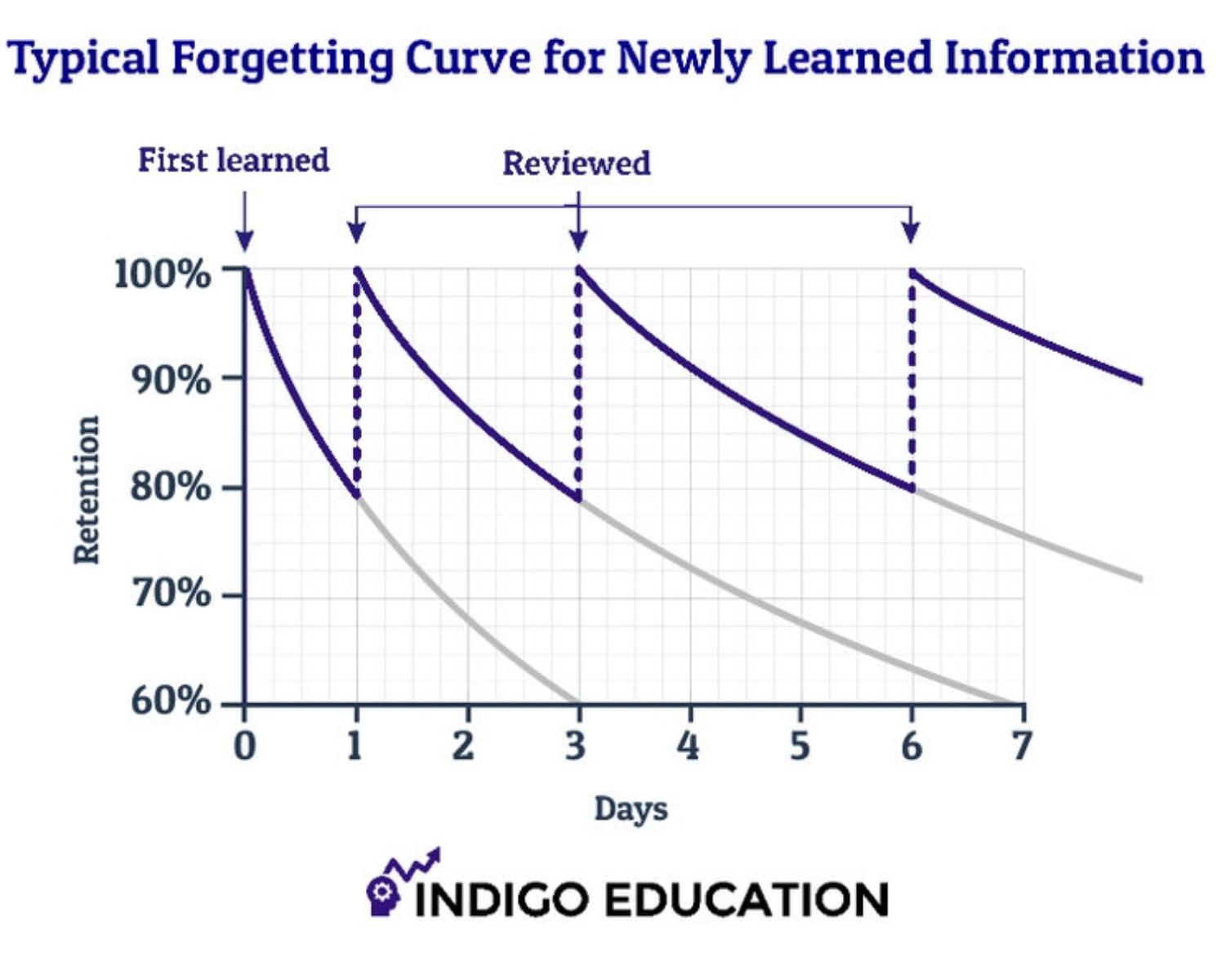The Forgetting Curve: Why We Forget, and What We Can Do About It
Curated from: mindtools.com
Ideas, facts & insights covering these topics:
6 ideas
·2.26K reads
34
2
Explore the World's Best Ideas
Join today and uncover 100+ curated journeys from 50+ topics. Unlock access to our mobile app with extensive features.
Origin of Forgetting Curve and how to beat it.
Ebbinghaus experimented with his own ability to remember some new information and recall it after different lengths of time. His experiences and results revealed a number of key aspects of memory:
1)Memories weaken over time.
2)The biggest drop in retention happens soon after learning.
3)It's easier to remember things that have meaning.
4)The way something is presented affects learning.
5)How you feel affects how well you remember.
71
703 reads
Techniques to prevent forgetting and boost the memory.
1)Use "Spaced learning"
The most important discovery Ebbinghaus made was that, by reviewing new information at key moments on the Forgetting Curve, you can reduce the rate at which you forget it!
Even though our memory fades quickly, a review session soon after the original learning can improve it. This session should happen when recall has slipped significantly, but hasn't fallen so low that you're essentially starting over.
64
374 reads
Exactly how you time and space your review sessions will depend on a number of factors: the type of material you're learning, how much detail you need to know, and how long you want to keep it fresh in your mind. And, if other information disrupts or distracts you, you'll likely have to put in more work to keep your learning strong.
57
319 reads
2)Overlearn
Another strategy Ebbinghaus explored was "overlearning" – that is, putting in more than the usual amount of effort when you learn something. He found that doing this improved retention, and slowed the steep drop seen on the Forgetting Curve.
He also pointed out that, by using certain memory strategies, we can improve our chances of retaining even hard-to-learn information.
65
304 reads
3)Make information meaningful
Do everything you can to make the material that you need to learn clear, relevant and purposeful, and establish a strong reason for retaining it. The more you know how something will benefit you in the long term, the more likely your memory will prioritize it.
Reducing distractions and other demands – known as your " cognitive load " – should also help with this.
64
258 reads
4)Keep challenging your memory
If you come to review some information and discover gaps in your memory, don't despair! This is the most productive time for stretching your recall . Learning done at this point will be all the stronger because of the mental challenge involved.
If you're imparting learning or information to an audience, or delivering training, make it as interactive as possible. Even just asking questions will encourage people to sort and strengthen the information in their minds.
64
310 reads
IDEAS CURATED BY
R . SUGA's ideas are part of this journey:
Learn more about health with this collection
Importance of rest and recovery
Effective workout routines
Proper nutrition for muscle building
Related collections
Similar ideas
6 ideas
What is Active Recall and How to Use It
productive.fish
5 ideas
How to Remember More of What You Learn with Spaced Repetition
collegeinfogeek.com
7 ideas
What's the best, most effective way to take notes?
theconversation.com
Read & Learn
20x Faster
without
deepstash
with
deepstash
with
deepstash
Personalized microlearning
—
100+ Learning Journeys
—
Access to 200,000+ ideas
—
Access to the mobile app
—
Unlimited idea saving
—
—
Unlimited history
—
—
Unlimited listening to ideas
—
—
Downloading & offline access
—
—
Supercharge your mind with one idea per day
Enter your email and spend 1 minute every day to learn something new.
I agree to receive email updates

